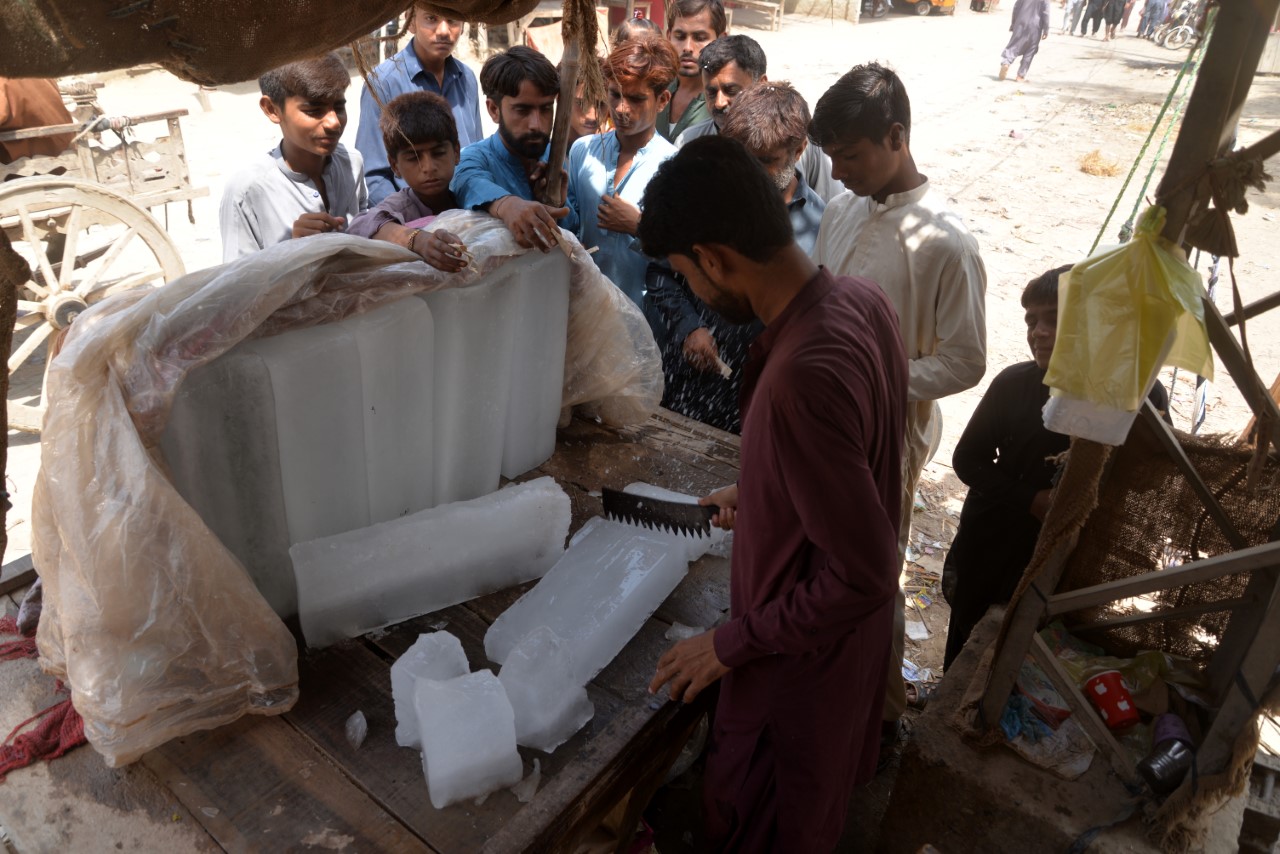Most of the residents of Raza Muhammad Brohi, a village consisting of two dozen houses located some distance from the city of Jacobabad in Sindh province, have temporarily moved to Quetta, Hyderabad, Jamshoro, Karachi and other cities with the beginning of summer. .
Due to the increase in temperature due to climate change, there has been a temporary migration to other cities during the summer in Jacobabad during the last two decades, but the migration has accelerated in the last few years.
According to a recent study by the Community Development Foundation, a non-governmental organization working in Jacobabad since 2003, the number of people who migrate to other cities in summer has reached 40 to 50 percent of the total population of Jacobabad district and Majority of them belong to rural areas of the district.
Most of the residents of one such village, Raza Muhammad Brohi, have also moved to other cities, while others are also preparing to leave.
Rab Nawaz, a resident of the village, told Independent Urdu: ‘Every year usually people start migrating from the beginning of May, but this year the heat has already started from April. Also, we have heard that there is a possibility of extreme heat this year, so people have cautiously moved to other cities in April.’
Recently Pakistan Meteorological Department has predicted heat wave in different regions of the country during the months of March to May.
But not everyone in the region is as fortunate as the residents of village Raza Muhammad to somehow arrange all the arrangements to move to other cities to escape the heat and find employment in a new place.
Hasna Brohi, a 35-year-old resident of village Hafeezabad, will not be able to leave her village to go to Quetta or any other city this year despite the forecast of severe heat.
Lakhmir Brohi, husband of Hasna Brohi, a mother of seven children, works as a laborer at a brick kiln and owes him four lakh rupees.
Speaking to Independent Urdu, Hasna Brohi said that her family has been migrating to Quetta during the summer for the past several years, where they not only escape the extreme heat but also find employment.
According to him: ‘But even this temporary displacement is not so easy. Need money to travel with luggage and children. House rent is very high in a new place, so we make our own jhagi. Making a jhagi requires time along with money and during that time no work can be done.’
Hasna added: ‘We went to Quetta last year, my husband worked at a brick kiln there for a few days, but then it rained and the kiln was closed for three months. During this time we lived by borrowing from the kiln owner, later we came back in debt. If this happens this year too, the debt will increase, so we cannot take the risk of going this year.’
Hasna Brohi’s house was completely destroyed during the severe floods of 2010, after which her family suffered a lot due to extreme heat. In 2022, his house was once again damaged in a flood.
He said: ‘Can’t buy solar panels or batteries despite extreme heat as their prices have gone up too much. In addition, inflation has become extremely high. It has become difficult to arrange two meals a day for the children while there has been no increase in the wages of the workers.’
John Mohammad Odhano, Head of Community Development Foundation, said: ‘We recently conducted a research according to which 40 to 50 percent of the population of the villages of Jacobabad district migrate to other cities such as Quetta, Jamshoro, Hyderabad and other cities during the summer. Goes to Karachi.
In these cities, they also find work quickly and are protected from extreme heat. After three to six months of migration, these people return.’
According to Deputy Commissioner of Jacobabad Muhammad Yousaf Shaikh, there has been an increase in temporary migration not only to Jacobabad district but also to other districts. Along with this, there has been a tremendous increase in the permanent migration from the villages of the district to the big cities.
This section contains related reference points (Related Nodes field).
According to Yusuf Shaikh: ‘With the heat increasing, people are migrating from the rural areas to the cities due to the lack of basic facilities in the villages. Some time ago the urban population of the district was 25% of the total population, but now it has increased to 35%.
Deputy Commissioner Jacobabad further informed that historically Jacobabad covered 25 to 30 lakh acres up to Sabi, but later after revenue delimitation the present Jacobabad district consists of 6 lakh acres. Generally, only Jacobabad is considered hot, but the entire region is affected by the heat.
According to him: According to the data from the Department of Meteorology between 1997 and 2022, the temperature of Jacobabad has increased by three to three and a half degrees Celsius on average.
“In the past, the average temperature of Jacobabad used to be 49 degrees Celsius to 50 degrees Celsius, which has increased now. It also recorded up to 53 degrees Celsius. Last year, Jacobabad was also declared the hottest city in the world.
When asked what early warning system or other arrangements have been made by the district government to be aware of the increase in temperature? So Muhammad Yusuf Shaikh said: ‘We have set up special heat stroke wards in government hospitals along with district disaster management authority in addition to giving advance information about heat wave on social media and also drinking water stalls at specific places. are planted.’

